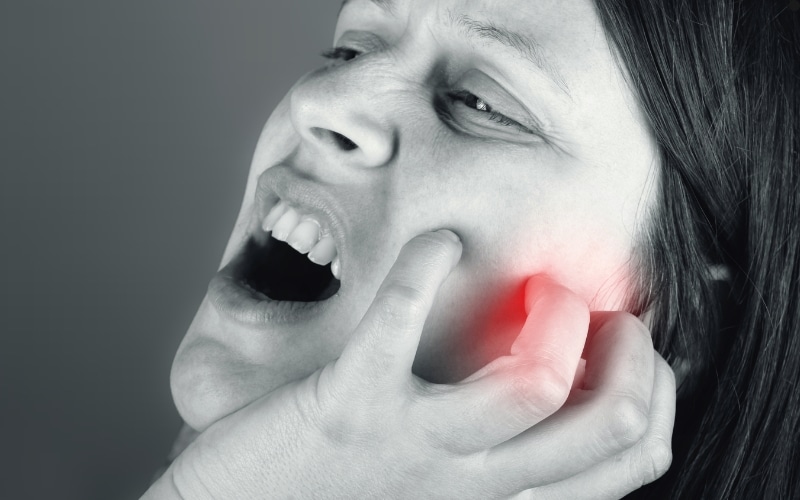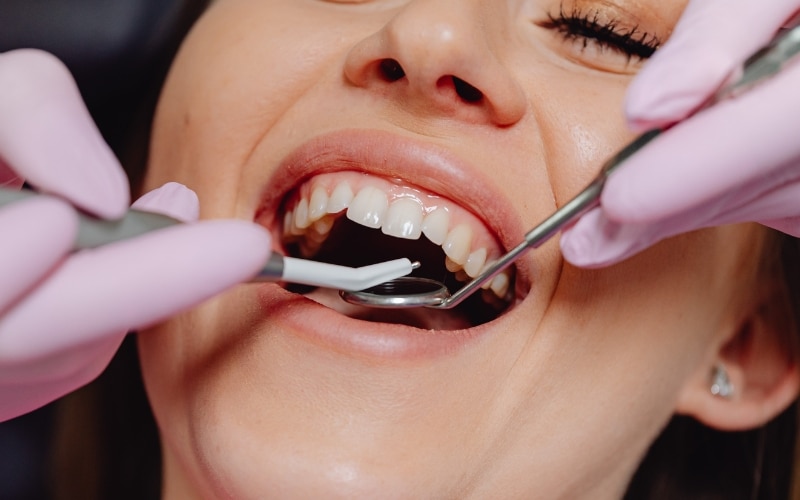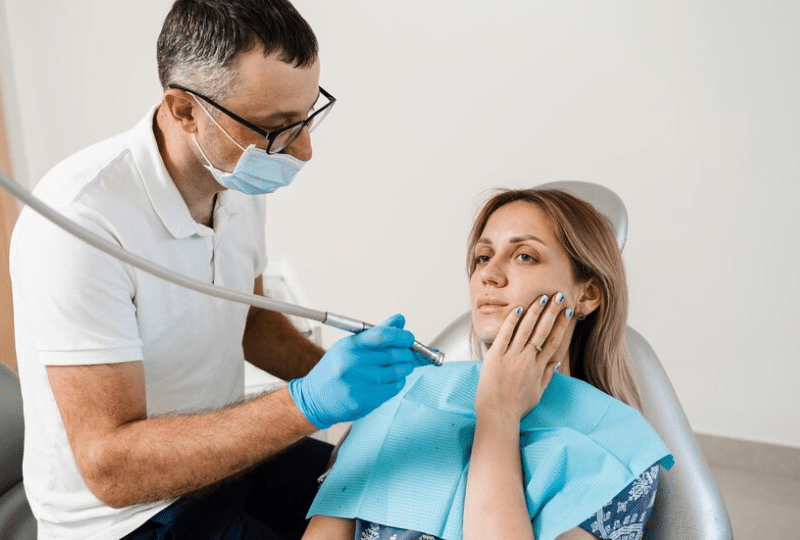
Toothaches can be one of the most persistent and annoying types of pain. They have a sneaky way of becoming more noticeable when the sun goes down. Nighttime should be a period of rest and recovery, but it turns into a battle against tooth pain for many people. Toothaches that seem mild or manageable during the day can escalate into throbbing agony when you lie down to sleep. In this blog post, I’ll explore these reasons in detail and offer some practical tips to help you cope with nocturnal dental pain.
Why Toothaches Are More Noticeable at Night
- Changes in Blood Flow
One of the main reasons toothaches are more noticeable at night is due to changes in blood flow. When you lie down, blood flow to the head increases. This increase can cause the pressure in your tooth to rise, intensifying the pain. During the day, you’re typically upright, which means gravity helps keep blood flow and pressure more evenly distributed throughout your body.
Practical Tip: If you’re experiencing a toothache at night, try propping up your head with an extra pillow. Elevating your head can help reduce blood flow to the affected area, potentially easing the pain.
- Fewer Distractions
During the day, you’re busy with work, errands, and social activities. These distractions can help take your mind off a mild toothache. However, at night, when you’re lying in bed with fewer distractions, you become more aware of the pain. This heightened awareness can make the toothache feel more intense.
Practical Tip: Engaging in a relaxing bedtime routine, such as reading a book or listening to soothing music, can help distract you from the pain and make it easier to fall asleep.
- Hormonal Changes
Our bodies follow a circadian rhythm, which influences various physiological processes, including hormone production. At night, the body releases certain hormones, such as cortisol, at lower levels. Cortisol has anti-inflammatory properties, so when its levels drop at night, inflammation and pain in the tooth may become more noticeable.
Practical Tip: Maintaining a consistent sleep schedule can help regulate your body’s circadian rhythm and potentially reduce the impact of hormonal changes on your toothache.
- Oral Habits and Nighttime Grinding
Some people have oral habits that contribute to nighttime toothaches. For instance, grinding or clenching your teeth at night (bruxism) can exacerbate tooth pain. The pressure from grinding can cause tooth damage and increase sensitivity.
Practical Tip: If you suspect you grind your teeth at night, consider using a mouthguard. Mouthguards can cushion your teeth and reduce the impact of grinding.
- Increased Sensitivity
At night, your mouth produces less saliva. Saliva helps wash away food particles and bacteria and has natural antibacterial properties. Reduced saliva production can lead to increased sensitivity and a higher risk of tooth decay, both of which can contribute to toothaches.
Practical Tip: Stay hydrated throughout the day and consider using a humidifier in your bedroom to keep the air moist. This can help maintain saliva production and reduce tooth sensitivity.
Managing Nighttime Toothaches
While understanding why toothaches are more noticeable at night is helpful, managing the pain effectively is crucial. Here are some strategies to help you cope:
- Over-the-Counter Pain Relievers: Medications like ibuprofen or acetaminophen can help reduce inflammation and relieve pain. Follow the dosage instructions on the label and consult with your dentalcare provider if you have any concerns.
- Cold Compress: Applying a cold compress to the affected area can help numb the pain and reduce inflammation. Use a cloth-wrapped ice pack and apply it to your cheek for 15-20 minutes.
- Salt Water Rinse: Rinsing your mouth with warm salt water can help reduce inflammation and kill bacteria. Mix half a teaspoon of salt in a glass of warm water and swish it around your mouth for 30 seconds before spitting it out.
- Clove Oil: Clove oil has natural analgesic and antibacterial properties. Apply a small amount to a cotton ball and gently dab it on the affected tooth.
- Good Oral Hygiene: Brushing and flossing regularly can help prevent toothaches by reducing plaque buildup and maintaining oral health. Use a toothpaste designed for sensitive teeth if needed.
When to Seek Emergency Care
While these tips can help manage mild toothaches, there are times when you should seek emergency care. If you experience any of the following symptoms, contact your dentist immediately:
- Severe, unrelenting pain
- Swelling in the face or jaw
- Fever
- Difficulty breathing or swallowing
- Pus or discharge from the affected tooth
These could be signs of serious possible causes of toothache that radiates to the face, such as an abscess or infection, and require prompt attention. Never delay in seeking professional care when these symptoms occur.
The Importance of Regular Dental Checkups
Regular dental checkups are essential for maintaining healthy teeth and preventing toothaches. Professional cleanings during checkups remove plaque and tartar buildup that regular brushing and flossing might miss, helping to prevent decay and gum disease. It’s generally recommended to schedule dental checkups at least twice a year, though more frequent visits might be necessary if you have a history of dental issues. Regular checkups play a vital role in preventing toothaches and ensuring overall oral health. If you’re experiencing tooth pain, don’t hesitate to visit our office for professional advice and treatment. We’re here to help you achieve and maintain a healthy smile.








